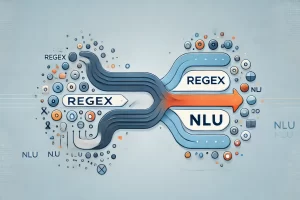Let’s dive into what a typical day looks like for an LQA reviewer, highlighting the tasks, challenges, and rewards of the role.
1. Reviewing and Evaluating Translated Content
Your day often starts by diving into the review and evaluation of translated content. The goal? To ensure that the translation not only adheres to style guides and terminology lists but also maintains accuracy and consistency across languages.
Some of the key tasks include:
- Accuracy checks: Verifying that the translation faithfully reflects the source text.
- Consistency checks: Ensuring terminology, tone, and style are consistent throughout the content.
- Functional testing: Testing localized content to confirm that it performs as intended in the target market.
In this role, you serve as the final checkpoint before localized content reaches the audience, making your meticulous attention to detail crucial.
2. Providing Feedback to Translators and Language Leads
One of the most valuable contributions you offer as an LQA reviewer is constructive feedback. You collaborate with translators and language leads, helping them improve their skills and ensuring that the quality of future translations aligns with brand standards.
This feedback process involves:
- Identifying errors or inconsistencies in the translation.
- Suggesting improvements based on linguistic best practices or client preferences.
- Promoting learning opportunities: Pointing out areas for improvement to help translators refine their craft over time.
Your ability to communicate clearly and effectively not only improves immediate translation quality but also elevates the entire team’s expertise.
3. Identifying and Resolving Language Quality Issues
As an LQA reviewer, you’re constantly on the lookout for language quality issues that could hinder the effectiveness of the translated content. Beyond simple errors, these issues can range from cultural missteps to technical bugs in the localized software. You’ll often work with cross-functional teams such as product development or customer support to address more complex issues.
For example, a date format that works in the source language may not be appropriate for the target market. Part of your job is to catch these issues before they become user-facing problems, ensuring a smooth, localized experience for end-users.
4. Staying Ahead of Industry Trends
In the ever-evolving field of localization, continuous learning is essential. From emerging technologies to shifting cultural trends, it’s important to stay informed. As an LQA reviewer, you may attend industry conferences, participate in training programs, or explore the latest tools and technologies that enhance quality assurance.
Whether it’s exploring new translation management systems (TMS) or learning about machine translation post-editing, keeping your skills up-to-date ensures that you remain a valuable asset in your organization.
Challenges Faced by LQA Reviewers
While the role of an LQA reviewer is rewarding, it also comes with its share of challenges. Here are a few obstacles you may encounter:
1. Attention to Detail
Reviewing large volumes of content while ensuring no error slips through can be demanding. Maintaining this high level of scrutiny requires laser-sharp focus.
2. Time Constraints
LQA reviewers often face tight deadlines, particularly when dealing with multiple projects across different languages. Prioritizing tasks and working efficiently under pressure are key skills that help you meet deadlines without compromising quality.
3. Navigating Cultural Differences
Since you’re working with content from a variety of languages and cultures, understanding cultural nuances is critical. What works in one region might not work in another, and the ability to assess these differences accurately is what sets great LQA reviewers apart.
What Makes the Role of an LQA Reviewer Fulfilling?
Despite its challenges, the role of an LQA reviewer offers many rewards. Some key benefits of the job include:
1. Delivering High-Quality Translations
Your top priority is ensuring that the translated content meets the highest standards. This includes:
- Verifying accuracy, consistency, and adherence to terminology.
- Testing functionality to ensure localized content behaves as intended.
Your work ensures that global users receive a flawless product, regardless of their language or location.
2. Building Strong Relationships
Collaboration is central to your role. You work closely with translators, language leads, and cross-functional teams. Building strong relationships with these individuals not only facilitates smooth workflows but also fosters a positive, collaborative working environment.
3. Continuous Improvement
LQA reviewers aren’t just tasked with finding errors—they’re problem-solvers. Your ability to implement new processes or tools and collaborate with others helps to improve the overall quality of localized content.
4. Lifelong Learning
Localization is a dynamic field, and the need to stay on top of industry trends means constant learning. Whether it’s discovering new tools or refining your understanding of cultural shifts, you’ll always be growing in this role.
The Impact of an LQA Reviewer
In the global marketplace, an LQA reviewer is a gatekeeper of quality. By reviewing and evaluating content, providing feedback, resolving quality issues, and staying ahead of trends, you ensure that localized content resonates with target audiences worldwide. It’s a challenging role, but for those with a passion for detail, collaboration, and continuous improvement, it’s also incredibly fulfilling.
In summary, a successful day as an LQA reviewer includes:
- Reviewing translated content for accuracy and functionality.
- Providing clear feedback to improve translation quality.
- Collaborating with teams to resolve language and technical issues.
- Staying up-to-date with industry innovations and trends.
In this evolving industry, your work as an LQA reviewer is essential for delivering high-quality translations that enhance global communication and customer satisfaction.






